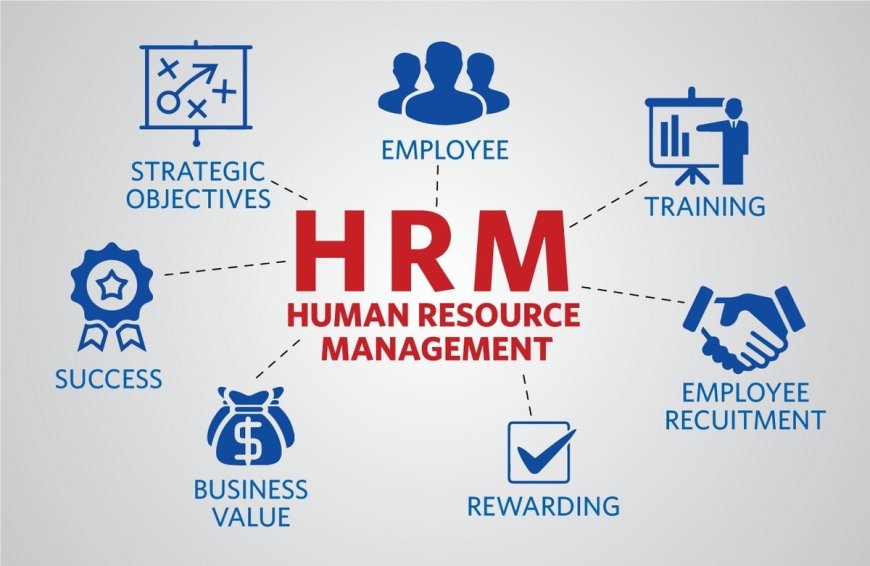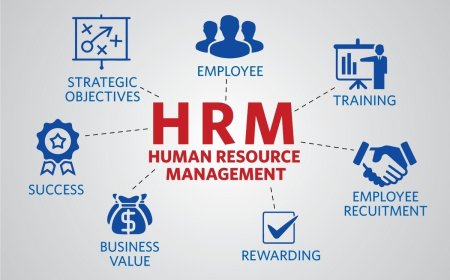Importance of HR in IT company

IMPORTANCE OF HUMAN RESOURCES IN AN IT COMPANY
In this growing world economy, many businesses are becoming successful with the help of information technology. Companies that have recognized and collaborated on the importance of IT have created greater chances of success for themselves. The IT industry deals with computing, including software, hardware, telecommunications, and anything involved in the transmission of information and systems that facilitate communication. It is one of the fastest-growing and most beneficial industries globally. Now, the question arises: In this industry where work is mainly done on computers or other technological hardware, is human resources as important as in other industries? The answer is yes, and in this article, we will discuss how human resources are important for the IT industry.
Human resources refer to the division or department of a business that is charged with or responsible for all employee-related operations, including finding the need for human resources, acquiring, recruiting, training and development, compensation and benefits, etc. Human resources is one of the main functional departments that play a crucial and significant role in organizational growth and development. Nowadays, every kind of organization implements HR practices to make their operations more integrated, efficient, and effective.
Human resources play a critical role in IT organizations in many ways. The IT sector requires people who are highly competent, talented, and well-educated. The quality and quantity of services in IT are determined by human resources, who require ongoing and multi-skilled training. Let's delve into how human resources are important in IT companies.
Recruiting: One of the biggest roles of human resources is recruiting employees. Recruitment involves attracting, identifying, screening, shortlisting, and hiring the best employees for vacant positions in an organization. Every industry needs human resources to meet their human resource requirements and achieve organizational objectives. In IT, companies need skilled, educated, and talented employees to operate their programs, hardware, and software. Human resources are crucial in providing the best employees to achieve organizational goals.
Hiring: Hiring employees is crucial for organizational development. Human resources are responsible for hiring and selecting the best personnel among other candidates. IT companies often have high employee turnover ratios, so human resources are required to constantly meet the demand and supply of employees in their organizations.
Training and development: IT industries are constantly evolving, introducing new technologies and innovations. Human resources in IT companies train employees on new technologies and innovations, and develop their skills, abilities, and knowledge according to market and organizational requirements. This training and development help increase employee productivity and contribute to the organization's growth in achieving its goals and objectives.
Compensation and benefits: Human resources are essential for organizations to distribute salaries, incentives, and benefits to their employees. Employees expect more returns on their inputs in organizations. Human resources introduce incentives, promotions, and benefits to reduce employee turnover ratios. In the rapidly growing IT industry, employees have high return expectations, and human resources play a crucial role in determining their salary and performance-based incentives and rewards.
Resolving conflicts: In professions where employees have to communicate extensively with each other and clients, conflicts often arise. Human resources are responsible for managing conflicts in organizations. Managers identify conflicts and find reliable solutions for resolving them.
Maintaining compliance: Human resources ensure organizations comply with state and government laws and regulations. This includes verifying employees' eligibility to work in an organization or country and providing compensation and benefits as defined by central or state laws. Human resource managers must be aware of government regulations and related fields to ensure compliance.
Evaluating and improving employee performance: Every organization wants to evaluate employee performance and overall productivity. Human resources play a crucial role in evaluating employee and organizational performance. HR compares individual or organizational performance with defined performance standards, determines outcomes, and plans and designs improvements to match predefined standards. By evaluating and improving performance standards, HR helps organizations reach their goals.
Assisting in career and succession planning: Human resource management is not only focused on organizational development and growth; it is also important for employees to progress in their careers. The HR department conducts activities that help employees with career and succession planning, working with top managers to identify the best talents in the organization.
Ensuring budget control: Every organization provides a yearly budget to cover various expenses. IT companies have large budgets due to their high involvement in technology, innovations, and updates. The HR department is responsible for ensuring budget control, checking and ensuring that the company's expenses do not increase.
Maintaining discipline and culture: Human resources play a vital role in maintaining discipline and a positive work culture in organizations. It is their duty to promote work and corporate discipline, and create a clean and friendly work environment that helps attract employees and clients.
Maintaining good relations with employees and clients: A company's credibility is defined by its market share and relations with employees, vendors, and clients. It is important for organizations to maintain good relations with all stakeholders. Human resources are effective in maintaining relations with these stakeholders, which helps create a credible and positive brand image in the market.
Employee satisfaction and strategic management: The human resources department plays a crucial role in ensuring employee satisfaction. Satisfied employees become loyal employees, forming a solid foundation for the organization's success.
Ensuring employee well-being and administrative work: Human resources are responsible for ensuring employee well-being, both physically and mentally. HR helps employees by providing safety and support, as well as handling administrative work such as documentation and securing crucial financial statements of the organization.
Every organization requires a skilled and capable human resources department to perform these roles and responsibilities. Human resource management is essential because it allows companies to effectively utilize their human and other resources, increase productivity, and determine employee demand and supply. A quality HR department also plays a significant role in determining business growth. While many factors influence HR in the IT sector, human resources are difficult to replace. It is one of the essential assets required to establish and grow a business. HR practices need to be integrated with overall strategies to ensure effective use of people and provide better returns to the organization. Failure to design HRM practices in this way can result in underutilization of human resources, which is detrimental to the organization's success.
Sent: 7/14/23 6:05 PM
To: "shivam@khichdi.org" <shivam@khichdi.org>
Subject: IMPORTANCE OF HR IN IT COMPANIES
IMPORTANCE OF HUMAN RESOURCE IN IT COMPANY
In this growing world economy, many businesses are becoming successful with the help of information technology. Those companies that have collaborated and recognised the importance of IT have created greater chances of success for themselves. The IT industry deals with computing, including software, hardware, telecommunications, and generally anything involved in the transmittal of information and systems that facilitate communication. It is one of the fastest-growing and most beneficial industries globally. Now the question is, in this industry where mainly work is done on computers or any other technological hardware, is Human resource as important as in other industries? Yes or no, what will be the answer? Thus, in this article, we will discuss how human resources are important for the IT industry. Basically, human resources means a division or a department of business that is charged with or responsible for all employees and employee-related operations. Such as finding the need for human resources, acquiring, recruiting, training and development, compensation and benefits, etc. Human Resources is one of the main functional departments; they play a crucial and significant role in organisational growth and development. Each and every kind of organisation nowadays implements HR practices in their firm to make their operations more integrated, efficient, and effective.
A human-based management department that helps IT organisations in many ways Human resources are critical in businesses that need a high level of knowledge and expertise, such as information technology. The IT sector requires people who are highly competent, talented, and well educated. Both the quality and quantity of services are determined by human resources, which require ongoing and multi-skilled training. Now, we will talk in detail about how Human resources are very important in IT companies.
- Recruiting: One of the biggest roles of Human resources is recruiting employees. Recruitment refers to attracting, identifying, screening, shortlisting, and hiring the best employees for vacant positions in an organisation. A process of recruitment requires lots of skills and knowledge to find the best employees for that position. Every industry needs human resources to meet their human needs and achieve organisational objectives. In IT, companies need many skilled, educated, and talented employees to operate their programs, hardware, and software. To provide the best employees for achieving organisational goals, companies need human resources to fulfill their requirements for skilled personnel.
- Hiring: Hiring employees is very crucial; it is the process of finding the best candidate for a job among others. Human resources are required to develop an organisation by hiring and selecting the best personnel among other candidates. A candidate who fulfills all the requirements of the job will be selected for that role. IT companies have high employee turnover ratios. Thus, IT companies require Human resources to constantly meet the demand and supply of employees in their organisations.
- Training and development: IT industries are vastly growing industries that are introducing constant developments and innovations. Thus, in IT companies, Human resources train their employees with new technologies and innovations and develop their skills, abilities, and knowledge with current market and organisation requirements. At the end, this training and development are helpful for employees to increase their productivity and for the organisation to grow and achieve organisational goals and objectives faster and more effectively.
- Compensation and benefits: Human resources are very important for organisations to distribute their salaries, incentives, and benefits to their employees. Employees are seeking more returns on their inputs in organisations. Human Resources introduces many incentives, promotions, and benefits for employees so organisations can reduce their employee turnover ratios. IT is a very rapidly growing industry; thus, employees apply with high return expectations, and to determine their salary and performance-based incentives and rewards, human resources are very essential.
- Revolving conflicts: In professions where employees have to communicate a lot with each other and clients, many organisations face conflicts, whether between employees or with clients. Conflicts happen in every workplace. The reason behind this kind of conflict can be anything personal or otherwise. Human resources are responsible for managing this kind of conflict in organisations. Managers have to identify conflicts and find the most reliable solutions for these conflicts and particular situations.
- Maintaining compliance: Human resources ensure organisations comply with state and government laws and regulations. This will include starting to verify employees eligibility to work in an organisation or country to provide them compensation and benefits described by central or state laws. To ensure this compliance, Human Resource managers have to be aware of government regulations and other related fields. Every organisation is bound to provide necessary benefits and follow laws and regulations defined by the central or state government, and this work is done by HR.
- Evaluating and improving employee performance: every organisation wants to evaluate their employees and overall productivity. Human resources are also very important in evaluating employee and organisation performance. HR will compare individual or organisational performance with defined standards of performance, and then they will determine the outcome with a particular result, and then they will start their planning and designing to improve that performance to match the predefined standards. By evaluating and improving these performance standards, HR helps organisations reach their goals.
- Helping in career and succession planning: Human Resource management is not just focused on organisational developments and growth; HR is very important for employees to move forward in their careers. The HR department conducts many activities that help employees with career and succession planning. Also, HR professionals work with top managers to identify the best talents in the organisation.
- Ensuring budget control: every organisation provides a yearly budget to cover different expenses. IT companies have a large budget due to their high involvement in technology, new innovations, and updates. The HR department is responsible for ensuring budget control. HR personnel have to check and ensure that the company’s expenses do not increase.
- Maintaining discipline and culture: Human resources are very important to maintaining discipline and a good work culture in an organisation. It is their duty to maintain work and corporate discipline and also to create a clean and friendly work environment that helps the organisation attract employees as well as clients.
- Maintain good relations with employees and clients: A company's credit can be defined by their market share and their relations with their employees, vendors, and clients. It is important for all organisations to maintain good relations with all stakeholders. Human resources are very effective in maintaining relations with these stakeholders, which can also be helpful for organisations to create a creditable and positive brand image in the market.
- Employee satisfaction and strategic management: The human resources department is very helpful in making a base of satisfied employees. These satisfied employees transform into loyal employees, which makes a solid base for the success of the organisation.
- Ensuring employee wellbeing and administrative work: As a Human Resource manager in any firm, whether it is IT or manufacturing, personnel is responsible for ensuring employee wellbeing. Physically and mentally, employees often face problems in life. HR is very important to help them by providing safety, both physically and mentally. With this, employees are responsible for all administrative work. Starting from documentation to store and secure crucial financial statements of the organisation.
Every organisation requires a skilled and capable human resources department to perform all these roles and responsibilities. Human Resource management is essential because it benefits the company by allowing it to utilise all its human and other resources well, increase productivity, and determine employee demand and supply in the organisation. A quality HR department is also helpful in determining the growth of a business. There are many factors that influence HR in the IT sector. Still, human resources are hard to replace. It is one of those required assets to establish and grow a business. The practices of HR need to be integrated with overall strategies to ensure effective use of people and provide better returns to the organisation. Unless HRM practices are designed in this way, the firm stands to lose from fully utilising people fully, and this does not bode well for the success of the organisation.
What's Your Reaction?
 Like
0
Like
0
 Dislike
0
Dislike
0
 Love
0
Love
0
 Funny
0
Funny
0
 Angry
0
Angry
0
 Sad
0
Sad
0
 Wow
0
Wow
0







































































